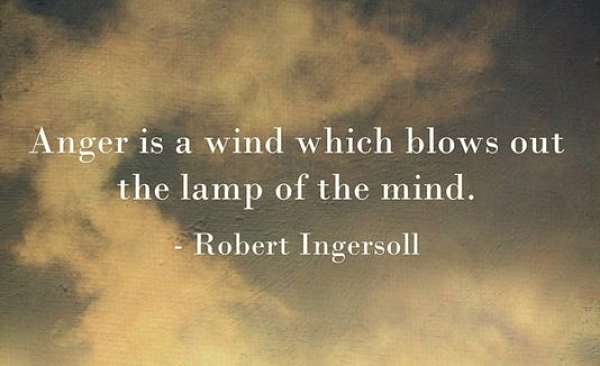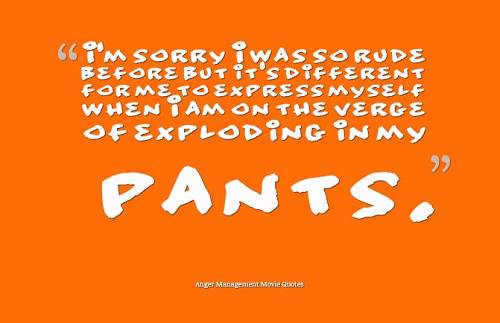Anger can pose problems for children and can affect school performance. Like other emotions, anger is accompanied by physiological changes; both heart rate and blood pressure may increase. Anger can be caused by both internal and external events. A child, for example, may become angry because he/she feels that his/her grades are not good (internal), or because a sibling has pushed (external).
The natural way to express anger is to respond aggressively. It is the intuitive response to the perception of physical or verbal threats. However, responding aggressively to every threatening situation is not healthy or safe. Violence leads to social problems, family difficulties, problems with justice and physical or emotional harm. Therefore, it is important to teach children healthy ways to control their anger.
Learn more about anger management for children.

How anger manifests by age.
In early childhood, children begin to acquire the ability to suppress their impulses of physical aggression (like pushing, hitting, pinching, biting, screaming, etc.) when they are angry. The preschoolers learn to identify basic emotional states in themselves and in others, and can express them by using words. However, some children cant get rid of physical violence behaviors (throwing toys, push or hitting their siblings, peers or even parents).
As they grow older, kids become more complex in using linguistic skills and begin to develop the ability to put oneself in the other. They acquire empathy and have less difficulties to understand the effect of their actions and words on others. Over the years they should have learned to express their anger with words and not violence. However, children with difficulties in speaking or mastering their impulses often struggle to control their feelings of anger and can respond using physical force, yelling or refusing to obey school rules or relatives.
Teenagers are stimulated by new idols and problems that can cause feelings of anger and frustration, as the growing need for independence and privacy, in addition to the increasing academic, social and labor pressure. Some young people express their frustration and anger by refusing to verbalize what they feel and think, while others react physically, throwing objects or slamming doors. Some teens have difficulty managing their impulses of physical aggression, and their reactions may reach the limit of anger against others. Group culture also keeps a key role in the acceptance of physical or verbal aggression as appropriate to the feelings of anger.
What can parents do?
The way parents respond to emotional situations significantly influences the child’s learning curve to manage their anger and emotions. Children need guidance to express emotions and behaviors correctly.
This right ability to manage anger will serve them from childhood to adulthood and results in better physical health and higher academic and work performance. It will reduce behavioral problems, while encouraging self-control, self-confidence and good relations with colleagues.
Some examples how parents can encourage effective skills to manage anger:
Help kids to develop empathy. For example, you can ask your child: “How do you think Mary feels when you shout at her and you take away her toy?” Or “How would you feel if Paul did that to you?”.
Every situation leading your child to cope with feelings of anger is a learning opportunity. When you notice that your child remained calm during an irritating situation, congratulate and reward him/her.
However, if it didn´t worked well, come to help to solve the problem.. Help to find options like “tell an adult” or “give back” and then encourage him/her to react the next time by choosing one of those socially accepted forms.
Ask them to think and participate regularly in positive activities, such as exercising, reading, music, etc., to keep them away from what irritates them. Advise them to make deep breaths before reacting aggressively when they are angry.
Some quick tips to help cool your child off:
One thing very helpful is playing soft music in the background, this can be either smooth classical music or calming children’s songs. Studies have confirmed that music has a powerful effect on our emotions.
Researchers have discovered that the emotions aroused by joyful music can produce beneficial effects on the function of blood vessels. The sense of joy awakens in listeners actually causes blood vessels to dilate or expand, allowing more oxygen in the body.

When to seek help from a professional?
Learning to control feelings of anger is a normal part of growing up. Some children acquire effective skills to control anger easily, while others need more practice.
If your child is struggling to calm down when angry or having frequent anger episodes, you may need the intervention of a mental health professional. There are programs designed specifically for children with anger management problems. Finding one that works for a particular child might require testing many different methods. Not all children respond to the same treatment for anger management.
A professional can assess the underlying causes and factors that trigger anger and frustration, and help the child to gain specific skills to control anger. This may also provide support and guidance for parents and teachers. Because a child cannot always relate their feelings to an angry outburst, finding the right approach may take some time. Until the issue is resolved or at least controlled, it is imperative to continue the research.
Get additional tips on anger management for children in our 5. Part.


